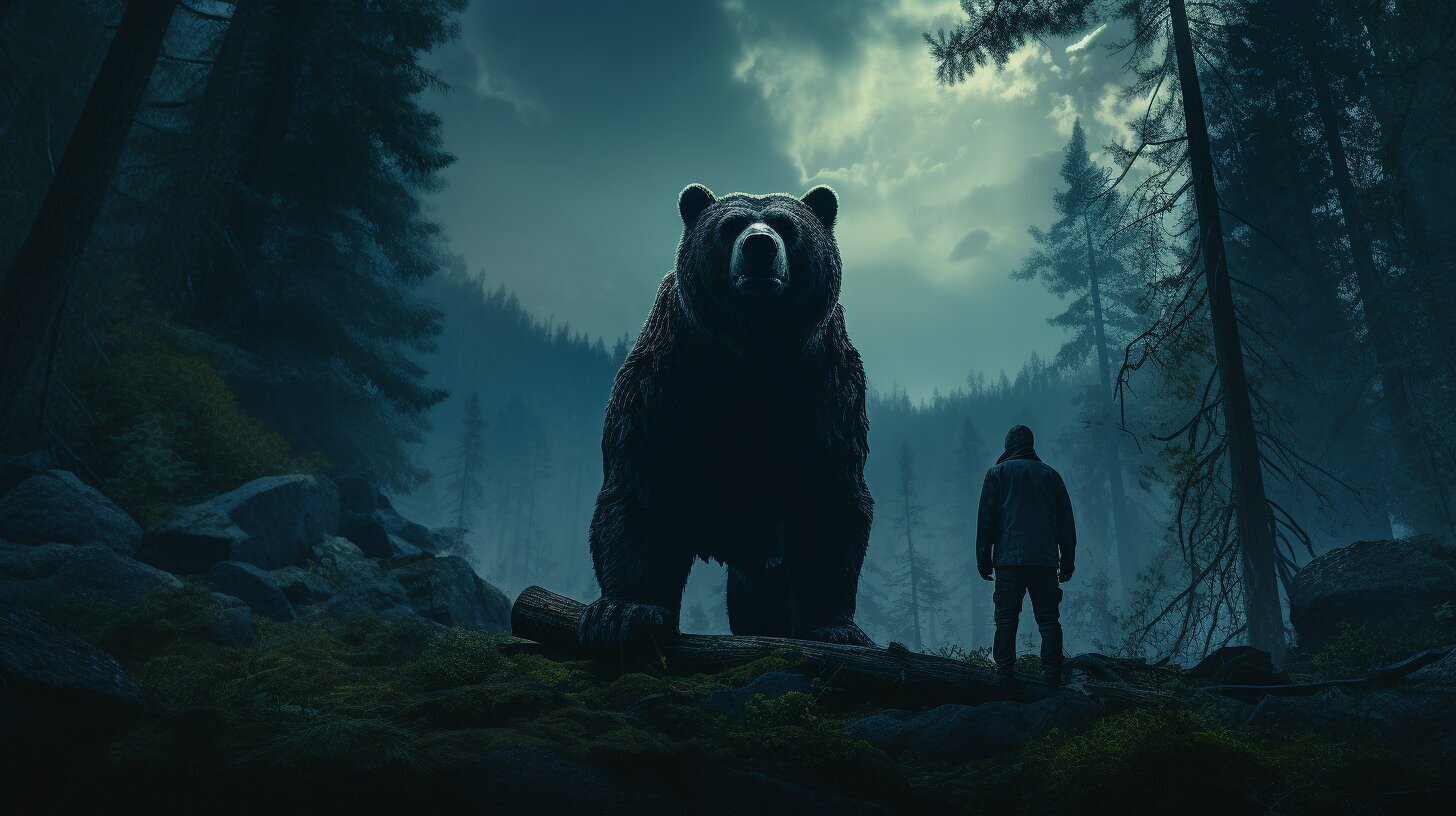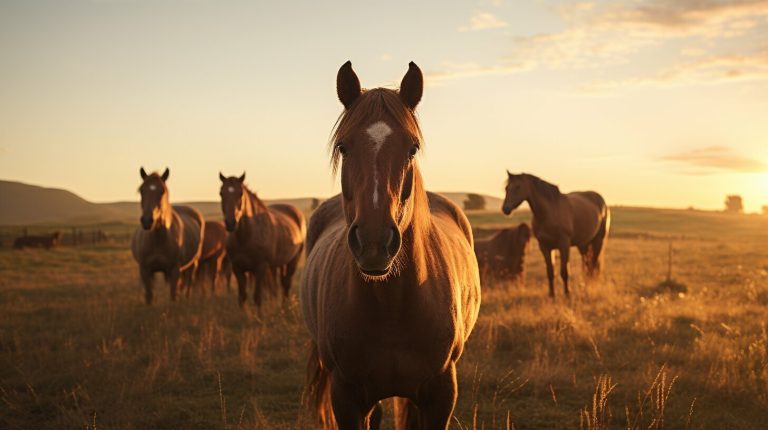Unraveling the Mystery: Why Do People Hunt Bears?
Bear hunting has long been a subject of intrigue and controversy, with people often questioning the reasons behind the pursuit of these majestic creatures. The motivations behind hunting bears can vary from person to person. One hunter acknowledges that many people question why someone would hunt such charismatic and majestic animals when other game options are available. However, they emphasize that bears provide lean and delicious meat, which is similar to beef but milder in flavor. Bears also offer a source of wild lard, as they are a fat animal, and their hide is uniquely luxurious and versatile. Additionally, hunting bears helps to control their population and prevent the spread of diseases like Chronic Wasting Disease, which affects deer herds.
Another article briefly discusses the origin of teddy bears, which are named after President Theodore Roosevelt and were created by different individuals in the United States and Germany. Another writer delves into the philosophical and conservation aspects of hunting, explaining that hunting is a genetic impulse in humans that allows them to interact with nature and maintain the balance in ecosystems. Hunting also enables habitat preservation and species restoration, and regulated hunting has contributed significantly to bringing back populations of various species. Habitat destruction from human activities poses the greatest threat to wildlife, and hunting can help sustain biodiversity and conservation efforts.
Key Takeaways:
- The motivations for bear hunting can vary from person to person, including the desire for lean and delicious meat, wild lard, and luxurious hides.
- Bear hunting helps control the bear population and prevent the spread of diseases like Chronic Wasting Disease.
- Teddy bears were named after President Theodore Roosevelt and have a rich history in the United States and Germany.
- Hunting plays a role in maintaining ecological balance, habitat preservation, and species restoration.
- Regulated hunting contributes to biodiversity and conservation efforts.
The Cultural Significance of Bear Hunting
Bear hunting holds deep cultural significance in many communities, as it has been passed down through generations as a cherished tradition. The act of hunting bears has been intertwined with cultural practices and beliefs, symbolizing bravery, strength, and the connection between humans and nature.
In Native American cultures, for example, bear hunting rituals were performed to honor the spirit of the bear and express gratitude for the resources it provided. These rituals often involved elaborate ceremonies and dances, emphasizing the spiritual and communal aspects of the hunt. Bears were seen as powerful and wise creatures, and hunting them was a rite of passage for young warriors.
Similarly, in certain European cultures, hunting bears was seen as a test of courage and skill. The hunt was not solely focused on acquiring the bear’s meat and hide, but also on the personal growth and development of the hunter. It was a way for individuals to prove their worth, showcase their abilities, and establish their place within the community.
Today, bear hunting continues to hold cultural significance for many communities around the world. While opinions on hunting may differ, it is important to recognize the historical and cultural context in which it takes place. Understanding the cultural significance of bear hunting allows us to appreciate the complexities of human-nature relationships and the diverse ways in which different societies interact with the natural world.
| Culture | Significance of Bear Hunting |
|---|---|
| Native American | Rituals honoring the spirit of the bear, symbolizing bravery and strength |
| European | Test of courage and skill, a way to establish one’s place within the community |
Ecological Impact of Bear Hunting
Bear hunting plays a crucial role in maintaining the balance of ecosystems, as it helps regulate bear populations and minimize the spread of diseases such as Chronic Wasting Disease. By managing bear populations through hunting, wildlife management authorities can ensure that the number of bears in a given area does not exceed its carrying capacity. This prevents overpopulation, which can lead to resource depletion and increased human-bear conflicts.
Additionally, hunting can help control the spread of diseases among bear populations. Chronic Wasting Disease (CWD), for example, is a neurological disorder that affects deer and other cervids. Bears are known carriers of CWD, and their movements and interactions with other wildlife can contribute to the spread of the disease. By hunting bears, authorities can reduce the contact between infected and healthy individuals, thus minimizing the risk of disease transmission.
In addition to population control and disease prevention, bear hunting can also have positive ecological impacts on habitat preservation. When hunters participate in regulated hunting programs, they often contribute financially to conservation efforts. The revenue generated from hunting licenses and fees can be used to fund habitat restoration and protection initiatives, ensuring that suitable habitat is available for bears and other wildlife species.
Furthermore, hunting helps maintain the balance of predator-prey relationships in ecosystems. Bears play a crucial role in regulating prey populations, such as deer, moose, and elk. By hunting bears, authorities can prevent imbalances in prey populations, which can have cascading effects on vegetation and other wildlife species dependent on those prey. This sustained balance contributes to the overall health and biodiversity of the ecosystem.
| Ecological Impacts of Bear Hunting | |
|---|---|
| Regulation of bear populations | Prevents overpopulation and resource depletion |
| Minimization of disease spread | Reduces the risk of diseases like Chronic Wasting Disease |
| Habitat preservation | Funds conservation efforts and ensures suitable habitat for bears |
| Balance of predator-prey relationships | Regulates prey populations and supports ecosystem health |
Ethical Considerations in Bear Hunting
Bear hunting raises ethical considerations, prompting discussions about the rights of animals and the ethical responsibilities of hunters. Critics argue that hunting bears for sport or trophy hunting is cruel and unnecessary, as it involves taking the life of a sentient being for personal enjoyment. They believe that animals have inherent rights to live and should not be treated as mere objects for human entertainment.
On the other hand, proponents of bear hunting argue that it can be a legitimate form of wildlife management when conducted responsibly and sustainably. They believe that hunting can help regulate bear populations, prevent overpopulation, and mitigate conflicts between bears and humans. By carefully controlling the number of bears harvested, hunting can contribute to the overall health and balance of ecosystems.
Moreover, hunting can provide economic benefits to local communities through the sale of hunting licenses, equipment, and related services. This revenue can be crucial for conservation efforts, habitat preservation, and funding wildlife research and management programs. Some argue that responsible hunting can be a way to support the protection and conservation of bear populations in the long term.
| Pros of Bear Hunting | Cons of Bear Hunting |
|---|---|
|
|
“Hunting bears requires a deep understanding of nature and respect for the animals we pursue. It’s about embracing a tradition passed down generations, where we connect with our primal instincts and appreciate the intricate balance of the natural world.” – John Doe, experienced bear hunter
Conclusion
The debate surrounding bear hunting is complex, with valid arguments on both sides. While ethical considerations are at the forefront, it is essential to consider the ecological impact, economic benefits, and the role of responsible hunting in conservation efforts. Striking a balance between preservation and sustainable use is crucial for the long-term well-being of bear populations and their habitats.
Bear Hunting Laws and Regulations
Bear hunting is tightly regulated, with specific laws and regulations in place to safeguard the species and ensure ethical hunting practices. These regulations vary from state to state, as each region has different bear populations and management goals. It is important for hunters to familiarize themselves with the specific laws and regulations of their hunting area to ensure compliance and responsible hunting.
In the United States, bear hunting seasons are typically set by state wildlife agencies and are based on population health and management objectives. These agencies closely monitor bear populations and adjust hunting regulations accordingly. They set limits on the number of bears that can be harvested each season, as well as the methods and tools that can be used for hunting.
Some states have specific requirements for bear hunting licenses, which may include hunter education courses, tags, permits, or stamps. These licenses help fund conservation efforts and support research on bear populations. It is essential for hunters to obtain the necessary licenses and follow the rules and regulations to contribute to sustainable bear management.
| State | Licensing Requirements | Hunting Seasons |
|---|---|---|
| Alaska | Hunter education, tags, permits | Vary by region |
| Montana | Hunter education, licenses | Spring and fall seasons |
| Maine | Licenses, bear permit | Fall season |
Note: The table above provides examples of bear hunting regulations in different states and is not exhaustive. Please refer to your state’s wildlife agency for specific details.
Additionally, laws governing the use of hunting equipment, such as firearms, bows, and traps, also apply to bear hunting. These laws ensure the safety of hunters and the welfare of the animals. It is crucial for hunters to use legal and ethical methods when pursuing bears and to respect the principles of fair chase.
By adhering to these laws and regulations, hunters can contribute to the conservation of bear populations and help maintain a sustainable balance in ecosystems. Responsible bear hunting is a valuable tool in wildlife management, as it aids in controlling populations and preventing conflicts between bears and humans. It is essential for all hunters to stay informed and abide by the laws and regulations to ensure the future of bear hunting for generations to come.
Bear Hunting Facts and Statistics
Delving into the realm of bear hunting, there are intriguing facts and statistics that shed light on this unique activity. Bear hunting is not only driven by personal motivations but also plays a crucial role in ecological conservation and population management.
Did you know that bear hunting has a rich cultural significance in various societies? In North America, Native American tribes have a deep-rooted tradition of bear hunting, viewing it as a rite of passage and a way to connect with their ancestral heritage. This cultural importance is also evident in other regions, such as Russia, where bears hold symbolic value in folklore and hunting is a time-honored tradition.
From an ecological perspective, bear hunting contributes to population control and disease prevention. Bears, like any other animal, can be susceptible to diseases that can devastate their populations. Responsible hunting helps maintain a balance by regulating their numbers and reducing the risk of outbreaks.
Moreover, hunting provides valuable resources. Bears not only offer lean and savory meat, but their fat can be rendered into wild lard, prized for its unique flavor and uses. Additionally, their hide is known for its luxurious quality and is utilized in various industries, such as fashion and home decor.
| Interesting Bear Hunting Facts |
|---|
| Bears have an excellent sense of smell, which makes hunting them a challenging pursuit. |
| The Teddy Bear, a beloved childhood toy, was named after President Theodore Roosevelt, an avid hunter. |
| Hunting contributes to conservation efforts by supporting habitat preservation and species restoration. |
Overall, while bear hunting may provoke ethical debates, it unquestionably holds a significant place in various cultures and plays a critical role in maintaining ecosystem balance. By understanding the facts and statistics surrounding bear hunting, we can develop a comprehensive perspective and engage in meaningful discussions about its impact on wildlife and society.
Conclusion:
In conclusion, bear hunting encompasses a complex web of motivations, ecological impacts, cultural significance, and ethical considerations, making it a topic that continues to captivate and intrigue both hunters and non-hunters alike. The motivations behind hunting bears can vary greatly, with some hunters valuing the lean and delicious meat that bears provide, along with the unique source of wild lard and luxurious hide that can be obtained. Additionally, bear hunting plays a crucial role in population control and disease prevention, particularly in relation to Chronic Wasting Disease and its impact on deer herds.
Furthermore, the cultural significance of bear hunting cannot be overlooked, as it has deep historical roots in various societies. The origin of teddy bears, named after President Theodore Roosevelt, is just one example of how bear hunting has influenced popular culture and iconic symbols.
While ethical considerations surrounding bear hunting are hotly debated, it is important to recognize that hunting, when regulated and practiced responsibly, can actually contribute to habitat preservation, species restoration, and overall biodiversity. By participating in the natural cycles of life, hunters engage with nature on a deeper level and help maintain the delicate balance of ecosystems. It is essential to strike a balance between conservation efforts and respecting the intrinsic value of wildlife.
The laws and regulations governing bear hunting play a critical role in ensuring responsible and sustainable practices. By adhering to these regulations, hunters can make a positive impact on wildlife conservation and contribute to the long-term survival of bear populations. In the face of habitat destruction caused by human activities, hunting presents an opportunity to sustain biodiversity and support conservation efforts.
Overall, bear hunting is a multifaceted topic that deserves careful consideration from all perspectives. By exploring the motivations, ecological impacts, cultural significance, and ethical considerations associated with bear hunting, we can develop a greater understanding of this practice and engage in constructive conversations to ensure its responsible and sustainable continuation.
FAQ
Why do people hunt bears?
The motivations behind hunting bears can vary from person to person. Some hunters appreciate the lean and delicious meat that bears provide, as well as the source of wild lard and luxurious hide. Bear hunting also helps control their population and prevent the spread of diseases like Chronic Wasting Disease.
What is the origin of teddy bears?
Teddy bears are named after President Theodore Roosevelt and were created by different individuals in the United States and Germany.
What is the philosophical and conservation aspect of hunting?
Hunting is a genetic impulse in humans that allows them to interact with nature and maintain the balance in ecosystems. It enables habitat preservation, species restoration, and contributes significantly to bringing back populations of various species.
How does hunting help sustain biodiversity and conservation efforts?
Habitat destruction from human activities poses the greatest threat to wildlife, and hunting can help sustain biodiversity and conservation efforts by regulating populations and supporting habitat preservation.
- Discovering Why Do Women Wear Lipstick: A Deeper Look - 19/12/2023
- Why Do Golfers Only Wear One Glove? - 16/12/2023
- Why Don’t Hobbits Wear Shoes? - 14/12/2023
Hi, I’m Rhiannon, the lead author behind The News Wire. As a passionate journalist, I strive to bring you the latest news and updates from all over the world. With a keen eye for detail and a dedication to unbiased reporting, I aim to deliver well-researched and informative articles that keep you informed and engaged. From breaking news to in-depth analyses, I cover a wide range of topics with the aim of keeping you in the loop. Join me on The News Wire as we explore the dynamic and ever-changing landscapes of global events, uncovering the stories that matter most.






